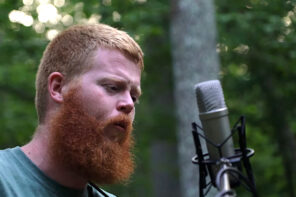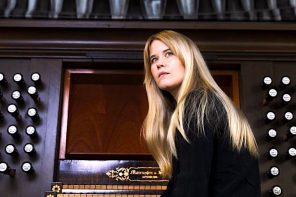It probably means that I’m a snob, but I couldn’t agree more with John Shepherd (via the Episcopal Cafe).
Shepherd says:
Credo: Trite music blocks our ears to the divine in the liturgy
Our worship enables us to enter another time and another dimension – a realm of experience beyond our ordinary human experience
How can we come to an experience of God? It’s a challenge, because no matter how much we read the Bible, study theology, formulate creeds, devise systems of belief and draw up rules for best Christian practice, all these efforts are only partial, tentative explorations into a dimension that lies beyond any definitive grid we could ever hope to impose. Which brings us to the worship of the liturgy, for it is in worship that we are immersed in the experience of God. It is here that we engage with the living God. It is in the liturgy that we are able to enter into another consciousness, probe a deeper reality, strive for a sense of transcendence which lifts us above the mundane, and in the words of psalmist, sets us on a rock that is higher than ourselves. Our worship enables us to enter another time and another dimension — a realm of experience beyond our ordinary human experience, beyond all our known thoughts and understandings.
…
This is why the Church should have no truck with banality. Yet, sadly, this is not universally the case. Too often, in a quaintly deluded attempt to achieve so-called relevance with a largely unidentified and notional constituency, the words of worship are denuded both of intellectual challenge and poetic imagery, and the music of worship is reduced to the most basic and arid of formulae. This toxic combination has achieved what many thought impossible. The emptying of our churches of those with minds to think, and emotions to inspire.
Indeed, though in fairness it should be noted that it’s not just contemporary Christian or “praise” music that sucks. Anyone who has picked up a musty old hymnal from before about 1970 or so knows that there are any number of dreadful, bloody old songs that are better left unsung. In fact, they’re probably better forgotten. I suppose you could compost them with some success, but even then you’re taking a chance. Ditto a good many Jewish folk hymns, and Charles Wesley wrote too many damn hymns altogether.
But I digress. The point is that in every era, there is some music that takes part in the transcendent, that carries with the sense “awe, the sense that one was being taken into the presence of a great and holy mystery,” as Thomas Long says in his book Beyond the Worship Wars*. And then there is the drivel. The trick is to know which is which, not always an easy task, and of course some people prefer the drivel precisely because they don’t want to be taken into the presence of a mystery at all, they just want some songs they can sing and a nice sermon about God that doesn’t make them think too hard.
That’s the church for you. Unless you go to Al Green’s church. I hear the music’s pretty good there.
*The title of this post is from Beyond the Worship Wars, and was one not-fan’s description of praise music.




